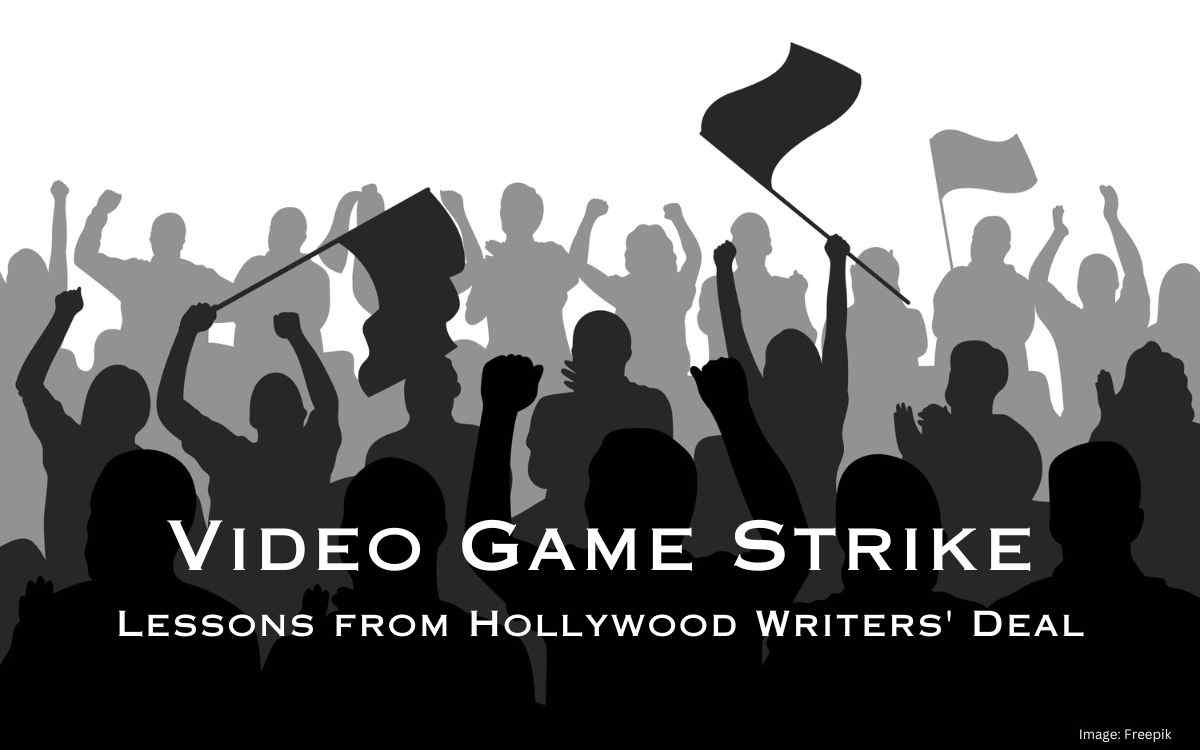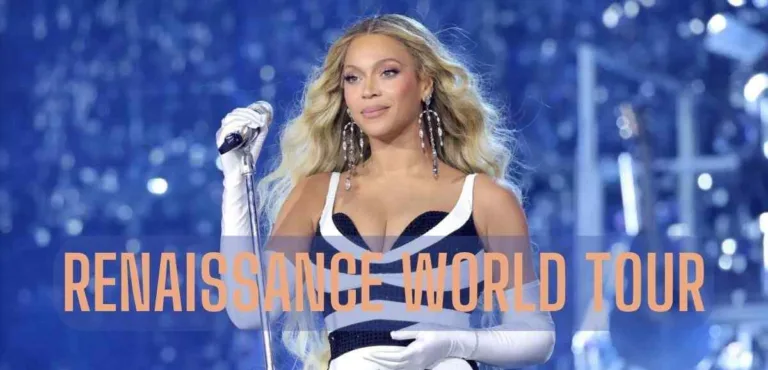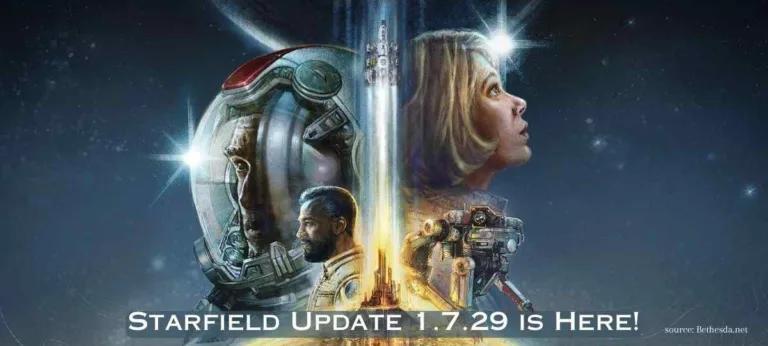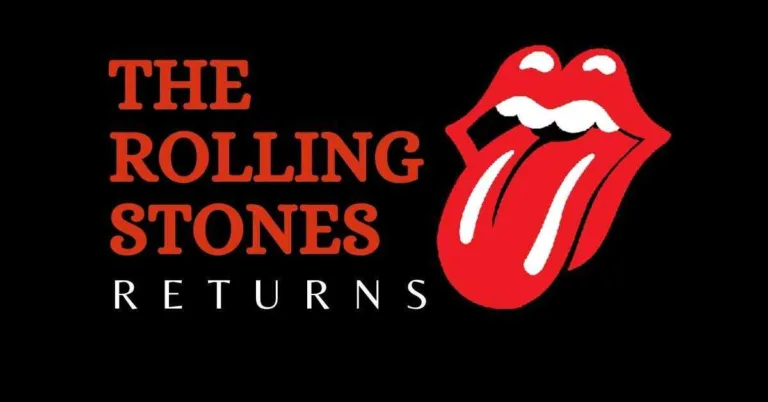Looming Video Game Strike: Lessons from the Hollywood Writers’ Deal
Introduction
In the video game industry, a significant strike looms large as actors who contribute to voiceovers, stunts, and motion capture for games consider walking out due to a deadlock in negotiations with game producers.
Under the representation of SAG-AFTRA, these dedicated actors are rallying for several critical improvements. Foremost among their demands is an increase in wages, recognizing the pivotal role they play in bringing characters to life.
They also advocate for enhanced safety measures to ensure their well-being during physically demanding performances.
Furthermore, the actors are fervently pushing for safeguards against the unchecked utilization of artificial intelligence in game development.
They seek a say in how their performances are utilized and modified by this advancing technology, aiming to maintain their creative influence over the characters they portray.
As the industry teeters on the precipice of this potential strike, both sides face the daunting challenge of finding common ground to ensure the seamless continuation of game production while addressing the valid concerns raised by these essential contributors to the gaming world.
A Familiar Tune: Video Game Actors and Strikes
This isn’t the first time video game actors have contemplated striking. In 2016, a work stoppage that spanned nearly a year had significant repercussions, impacting blockbuster titles like Call of Duty, Assassin’s Creed, and Uncharted.
Ultimately, a new contract was hammered out, introducing bonus payments, greater transparency, and additional compensation for the physically demanding vocal performances.
However, with the current contract set to expire in 2023, actors are pushing for further improvements, including royalties linked to game sales and greater control over their performances in the face of advancing artificial intelligence.
Meanwhile, video game producers, represented by the American Video Game Association (AVGA), vehemently oppose these demands, citing concerns about financial feasibility and the potential stifling of innovation in game design.
Negotiations have been ongoing since March 2023, but with no consensus reached, the looming threat of a strike remains, casting uncertainty over the release of highly anticipated games and the broader industry.”
The Hollywood Writers’ Deal
The Hollywood writers’ strike, one of the longest and costliest labor disputes in entertainment history, began in October 2022.
Writers, represented by the Writers Guild of America (WGA), walked out due to concerns regarding pay, staffing, and the role of artificial intelligence.
Writers aimed to increase their share of the revenue generated by streaming services, now the primary platform for viewing films and shows.
They sought better working conditions, including reducing the number of episodes per season, raising minimum pay for scriptwriters, and transitioning from independent contractor status to full-time employees.
Furthermore, they wanted more influence over how their scripts were used and altered by artificial intelligence, which can autonomously generate dialogue, plotlines, and characters.
Resistance from Big Studios
In opposition, studios, represented by the Alliance of Motion Picture and Television Producers (AMPTP), deemed these demands untenable and economically unsustainable.
They contended that higher payments to writers would diminish their profits and their capacity to invest in new content.
They also maintained that artificial intelligence was indispensable for creating diverse and original entertainment and that its restriction would undermine content quality and diversity.
The Strike
The strike endured for nearly five months, impacting hundreds of television shows and films and resulting in an estimated $2 billion in lost revenue and wages.
It also affected other industry professionals, including actors, directors, and crew members, whose work was halted or delayed.
The strike ultimately concluded on April 9th, 2023, following marathon negotiations mediated by federal officials.
>>>The agreement achieved several gains for writers:
- A 3% increase in minimum pay for scriptwriters across all platforms.
- A 2% increase in residuals for streaming services.
- A reduction in the number of episodes per season, from 22 to 20.
- A guarantee that writers would be hired as full-time employees.
- A requirement for studios to consult writers before using or modifying their scripts.
>>>The agreement also entailed some concessions from the writers:
- A cap on the royalties they could receive from streaming services.
- A waiver of their right to sue studios for breach of contract regarding artificial intelligence.
- A commitment to resume work immediately after ratifying the agreement.
The WGA’s governing boards approved the agreement on April 11th, 2023, followed by an affirmative vote from writers on April 14th, 2023, with a staggering 97% in favor.
The deal was lauded as a historic triumph for the writers, who had largely achieved their objectives while setting new industry standards.
Studios also welcomed the resolution, avoiding further losses and disruptions while establishing a stable and productive relationship with the writers.
Lessons for the Video Game Industry
The video game industry can glean valuable lessons from the Hollywood writers’ deal, as it faces a similar precipice.
By studying the triumphs and pitfalls of the writers and studios, video game actors and producers can navigate their own negotiations, steering clear of a strike and reaching a balanced, mutually beneficial accord.
Here are some key lessons that can help guide them:
1. Mutual Value Recognition
The writers and studios acknowledged their interdependence in creating both quality content and profitability.
Writers recognized that studios provided the resources and platforms for their scripts, while studios realized that writers provided the stories and characters that attracted audiences.
Similarly, video game actors and producers should respect and appreciate each other’s contributions to the gaming world.
2. Willingness to Compromise
The Hollywood writers and studios were able to find middle ground on contentious issues like pay, staffing, and artificial intelligence.
The writers accepted smaller residuals and royalties than initially demanded, while the studios agreed to increase minimum pay and reduce the number of episodes per season.
The writers also relinquished their right to sue over artificial intelligence, while the studios pledged to consult them before altering their scripts.
Similarly, video game actors and producers should be open to compromise on issues like royalties, safety measures, and artificial intelligence.
3. Seeking External Mediation
The Hollywood writers and studios found resolution with the aid of federal mediators who facilitated discussions and offered potential solutions.
Mediators played a pivotal role in breaking the deadlock and bridging gaps between both sides. Similarly, video game actors and producers can engage external help if negotiations stall.
Neutral third parties, such as labor experts, industry associations, or government officials, can mediate discussions and propose alternative solutions.
4. Acting in Good Faith
Throughout negotiations, the Hollywood writers and studios demonstrated a commitment to good-faith dialogue, even amidst disagreements and frustrations.
They maintained open communication, respected each other’s positions and interests, and refrained from personal attacks or insults.
They also upheld their commitments and obligations, such as returning to work following an agreement.
Video game actors and producers should follow suit, fostering a climate of respect and cooperation during their negotiations.
Conclusion
The video game industry stands at a pivotal moment, with actors demanding improved pay and working conditions. A potential strike could disrupt both sides, as well as impact other industry workers.
Yet, a strike can be averted if lessons are drawn from the recent Hollywood writers’ deal—a historic resolution to a long and costly strike that shook the film and television industry.
Video game actors and producers can apply these lessons, recognizing each other’s value, compromising when necessary, seeking external mediation if needed, and, most importantly, acting






